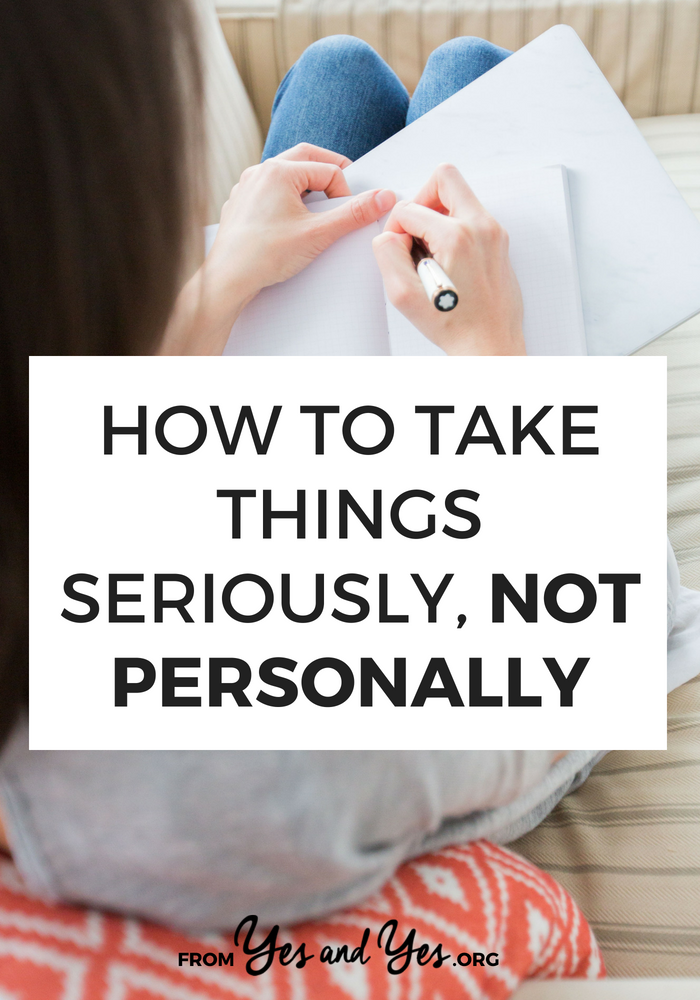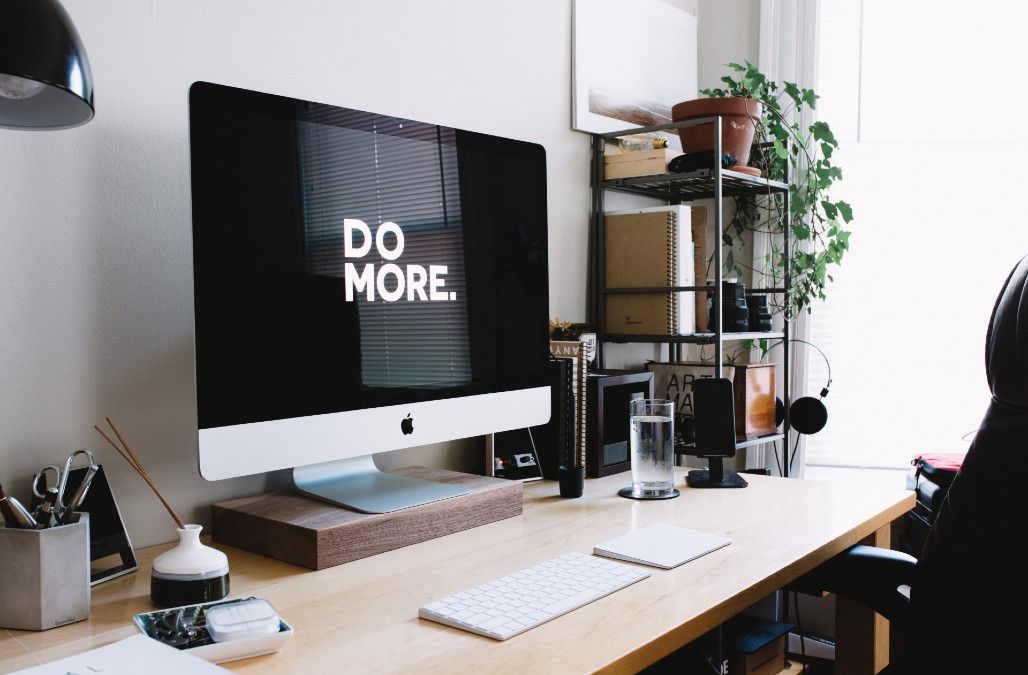
I’m sitting in my tiny, light-filled office about to push ‘send’ on the email I think is going to change my professional life.
It’s 2013 and I’ve spent the last two months rewriting, redesigning, and revamping an old ecourse. I’m ABSOLUTELY CONVINCED that this time around it’s going to sell like gym memberships on January 2nd. I’ve done everything I know how to do. When you work hard and do your best, success is imminent, right?
Reader, would you like to guess how many seats I sold in that ecourse? What sort of response I got?
Four spots sold and one of them went to a student who clearly bought it as market research. I got six snarky emails or blog comments about the price ($75 for 6 weeks of classes) and earned $300 from two months of work.
My reaction to this was a deep and abiding conviction that
- I was a failure
- everybody hated me
- clearly I wasn’t cut out for self-employment
- this sort of thing only happens to me and nobody else
So when I happened upon this Seth Godin quote it was salve to my emotional wounds.
“You can take things seriously but not personally. When something doesn’t work, it’s nothing personal. It might feel personal, that’s what our lizard brain wants, but is it really? Does it have to be?”
Whaaaaaat? Every failure and misstep is not a commentary on my value as a human? Sometimes I might try my hardest and things don’t work out and that doesn’t have to ruin my self-esteem for three months? I can look at my ‘unsubscribe’ numbers without hating myself?
THIS. IS. REVOLUTIONARY.
3 ways to take things seriously without taking them personally
Really, actually try
We’ve talked about this before. ‘Really Actually Trying’ does not look like half-reading one blog post. It does not look like listening to two podcasts about the topic while you cook.
It looks like:
- Reading, researching, taking notes, and taking action
- Talking to people who have successfully accomplished what you’re trying to accomplish
- Asking friends, peers, and mentors for feedback on your idea
- Proofing it backwards and forwards. Letting it rest for a few days and then proofing it again
- Giving yourself enough time to accomplish what you want – no all-nighters or last-minute changes
- Beta-testing your idea so you can tweak and improve it before you start
I’ve noticed that when I really, actually try, my end results are almost beside the point. I did LITERALLY EVERYTHING I KNOW HOW TO DO. If I didn’t hold anything back and I can’t think of any ways I could improve it, I’m much less likely to take feedback personally.
Consider the source
When we make our work public, we’re opening ourselves to public feedback. Some of that feedback will come from intelligent, accomplished, professional peers.
Some of it will come from unhappy people who have an infinite amount of free time to write unkind, unhelpful comments and emails.
It will shock you know that I don’t think we should give these types of feedback equal weight in our hearts and minds.
Some questions to ask yourself before you take that feedback into account:
- Does this person have more experience in this realm than I do?
- Has this person successfully accomplished the thing I’m trying to do?
- Does it feel ‘true’?
- Is this person happier than I am?
- Is this person my ‘ideal client’?
Notes on those last two questions. Someone can be a miserable grump and give you great professional feedback, but I do think it’s worth taking that feedback with the tiniest grain of salt. Do you want a balanced, happy life? Then perhaps the person who works 75 hours a week and just got a divorce isn’t the source of advice for you.
Similarly, someone who isn’t your ideal client might be a great source of feedback. They might be able to give you all sorts of helpful suggestions about typos, the flow of your ecourse, or your font choices. But if they make $200k and your ideal client makes $45k, maaaaaybe don’t take their advice about how to price your offerings.
Take your work seriously
If you’re a) a woman b) a creative, you’ve probably encountered 1,648,785 well-intentioned people who think your work is a hobby. You’ve probably heard “Soooo, that’s your whole job?” more times than you can count. Maybe people have asked what your partner does because they don’t believe you can make living running an Etsy shop/taking photos/making art.
If we’re not careful, it’s easy to internalize these comments and downplay our hard work. For yeaaaaars I said I “wasn’t a capital W writer.” I know lots of authors and journalists and I felt like they were ‘serious’ writers and I was just throwing words at the internet. When we don’t take our own work seriously, it’s hard to take feedback seriously.
Is it easy to choose not to take things personally? Is working hard and then releasing expectations a walk in the park? No. Suuuuuuper no.
But most of us aren’t even aware it’s an option! We’ve never considered putting months of effort into a project without tucking our ego in there, too.
I can acknowledge that you’re right – I probably should have read that email more thoroughly. I can do that without viewing your suggestion as a commentary on my intrinsic value.
I can read your constructive criticism and incorporate it without self-flagellating for the next three days.
I can research the best way to do something and put lots of time and effort into my work. We can put work into the world without viewing its success /failure as OUR success/failure. Share on X
Truly, it’s just business. It’s not personal.
Have you been able to stop taking feedback personally? If you have – tell us about it in the comments so we can learn from you!
P.S. Everything I use + recommend to run my business







It’s a good mindset to have, to separate yourself from your business. I understand that it’s very hard when it’s your own though – like, your own baby. I’m working under someone and it’s much easier to untangle my own emotions when the time is appropriate!
Charmaine Ng | Architecture & Lifestyle Blog
http://charmainenyw.com
“If you’re a) a woman b) a creative, you’ve probably encountered 1,648,785 well-intentioned people who think your work is a hobby.” ZOMG yesssssss. Or people who think my job is easy. Then why aren’t more people making a good living doing this? It’s what you DON’T see, yo.
This is an excellent, well-written piece about something we all struggle with in one way or another. Love that you added your testimonial on there! I listened to your guest spot on a podcast recently and you mentioned that you sometimes feel like you have to share a humbling personal experience in order to seem valid on your stance—- people like me totally LOVE that human aspect to your writing, but just know that your writing is totally valid regardless. <3 Great piece; I wish everyone would read it.
Oh, you’re so kind to say so, Kelsi! Thanks so much for reading and listening! <3
This one turned on lights for me, Sarah. Thanks for this tiny, seismic shift in my thinking.
Thank YOU for reading, Kortney! <3
Wow, it’s as if you were reading my thoughts this past month! I really need to examine where the feedback is coming from, and usually they don’t know more than me in this realm. I unnecessarily knock myself down. A most timely post. Thanks.
I had to learn this when I started working with a new boss who constantly looked for improvements. At first, I felt that sense of personal ownership of the end result and would take it as a personal judgment on my judgment that she would keep suggesting changes or new approaches, until the lightbulb turned on one day that I could either keep getting miffed over my work being “not good enough” or I could step back, take the job seriously, but separate my sense of self from the work that I performed.
The job is to do the job to the best of my abilities, not to grow my ego. Taking pride in a job well done is important but as long as I remember that I am not the job, I can focus on doing my best and being flexible enough to find better ways to grow than my old ways. It’s paid out high dividends to see things that way.
Great insights. I am an author, and I often don’t take myself seriously either. We think when we hit some certain plateau, then we can call ourselves a professional. It doesn’t work that way, however. We hit those plateaus, and we just set new ones up for ourselves. I thought I’d feel official when I got a publisher. It helped, but now I’m dealing with an editor who points out everything wrong with my novel, 5 star and 2 star reviews, and my own self-doubt about my ability to write the next book. I agree, we have to take our own work seriously or no one else ever will. And, everyone will never take our work seriously no matter what we do.
So needed to hear this today. I’m trying to launch my small business on the side while still working full time and I’m really facing a lot of self-doubt with the whole process because it feels so personal – like I’m selling ME, not a service that is something that I like to do.
This is also helpful in how we view PAST failures.
Love the “ideal” client bit. My ideal client is the lower earning business, too. I feel that too much emphasis is put on getting rich as quick as possible by charging thousands for your services. Help 4 people (doing as little as possible, btw) and make $150k, as opposed to really helping 15-20 (and feeling good about it) and making a comfortable living in the $40-50k range.
Loved this one Sarah! So common-sensy; really helpful for where I’m at right now, right at the start of my freelancing career. There’s no way I would have been able to write for a living any earlier in life. I found it so hard to separate my professional efforts from my personal worth and it held me back over and over again. I couldn’t really start kicking ass at life until I got over it. That said, I still struggle with this stuff…a lot… I will be filing this post under ‘to read on the days when I need motivation/inspiration/reminding that I’m okay’. xx Kamina
<3 <3
Just yesterday, I was all atwist about this exact scenario! Thank you for the perfect post at the perfect time. People who do not risk in this way could never understand the disappointment that comes with working “for free” with no guarantee that anyone will like or buy what you’re offering. So grateful to you today, Sarah!
<3 <3
This is so true – thank you! Overcoming that start-up feeling of the audience rejecting ‘me’ rather than the idea, until you can frame it better in your mind you’ll never work out the right changes to make for success!
Hey, I hear ya! I have spent years being to scared to actually create an actionable goal setting plan for my two projects. I eventually sat down last week and wrote a realistic Goal setting exercise for both my blog and art business and sat down today to do serious work on it. Feeling so much more confident I can do it now.